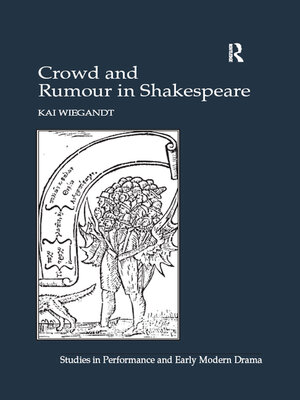Crowd and Rumour in Shakespeare
ebook ∣ Studies in Performance and Early Modern Drama
By Kai Wiegandt

Sign up to save your library
With an OverDrive account, you can save your favorite libraries for at-a-glance information about availability. Find out more about OverDrive accounts.
Find this title in Libby, the library reading app by OverDrive.



Search for a digital library with this title
Title found at these libraries:
| Library Name | Distance |
|---|---|
| Loading... |
In this study, the author offers new interpretations of Shakespeare's works in the context of two major contemporary notions of collectivity: the crowd and rumour. The plays illustrate that rumour and crowd are mutually dependent; they also betray a fascination with the fact that crowd and rumour make individuality disappear. Shakespeare dramatizes these mechanisms, relating the crowd to class conflict, to rhetoric, to the theatre and to the organization of the state; and linking rumour to fear, to fame and to philosophical doubt. Paying attention to all levels of collectivity, Wiegandt emphasizes the close relationship between the crowd onstage and the Elizabethan audience. He argues that there was a significant - and sometimes precarious - metatheatrical blurring between the crowd on the stage and the crowd around the stage in performances of crowd scenes. The book's focus on crowd and rumour provides fresh insights on the central problems of some of Shakespeare's most contentiously debated plays, and offers an alternative to the dominant tradition of celebrating Shakespeare as the origin of modern individualism.







